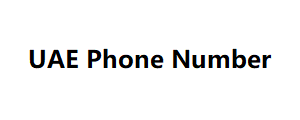Verification in the Digital
Age In today’s digital world, verification reigns supreme. From social media accounts to online banking, platforms require confirmation of your identity to ensure security and prevent fraud. But with a plethora of verification methods, including phone numbers, it can A Guide to be confusing to navigate. This article delves into the world of numbers for verification, exploring how they work and the various options available. Why Numbers? The Power and Convenience of Phone Verification Phone numbers are a popular choice for verification due to several factors.
Most people have a mobile phone
Making phone verification a widely accessible LGPD commented: learn the rules in clear language option. Security: A unique code sent to your phone adds an extra layer of protection compared to just a password. Convenience: The verification process is often quick and easy, involving receiving a code via SMS and entering it on the platform. Beyond Basics.
Exploring Different
Types of Phone Verification While the core concept of receiving a code via SMS remains the same, phone verification can take different forms: One-Time Passwords (OTPs): The most common method, where a unique code is sent via SMS and expires after a short period. Interactive Voice Response (IVR): An automated system calls your phone and reads you a code you then enter online. Mobile App Verification.Certain platforms might Use verification codes sent through their dedicated mobile apps. Moving Beyond Phone Numbers.
Alternative Verification Methods
Phone numbers aren’t the only option for online verification. Here are some alternatives: Email Verification: A verification code is sent to your email address for confirmation. Security Questions: Pre-set questions you answer to verify your identity (becoming less common due to potential security risks). Biometric Verification: Emerging technologies like fingerprint or facial recognition might be used in the future. Choosing the Right Method: Factors to Consider The best verification method depends on several factors: Platform Requirements.
Some platforms might require
Specific verification methods, like phone numbers for Free easy cooking course by the BBC financial transactions. Personal Preference: Do you prefer the convenience of SMS or the security of a dedicated app? Privacy Concerns: Consider how comfortable you are sharing your phone number with certain platforms. The Future of Verification: A World Beyond.
Numbers As technology advances
Verification methods are likely to evolve. Here are some potential future trends: Context-Aware Verification: Verification processes might adapt based on user behavior and potential risk factors. Multi-Factor Authentication (MFA): Combining multiple verification methods for enhanced security.


